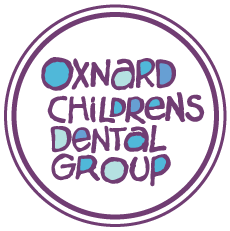Frequently Asked Questions
Answers to frequently asked questions for family/pediatric dentists about children and dental hygiene
This is one of our most frequently asked questions!
The American Academy of Pediatric Dentistry recommends that children visit the pediatric dentist by their first birthday.
The first visit is similar to a “well baby” check with your pediatrician. This visit will help prepare your child for a lifetime of healthy smiles.
At your child’s first visit, you can expect one of our pediatric dentists to do a thorough review of your child’s medical history and perform an infant oral exam. The dentist will evaluate your child’s growth and dental development and assess their risk for development of tooth decay. She will discuss oral hygiene and nutrition, review feeding practices, and address issues like teething, thumb and pacifier habits, fluoride use, and the prevention and treatment of oral injuries. We will also clean your baby’s teeth and offer tips for daily care. If your child is found to have cavities, options for treatment will be discussed.
Though we encourage parents not to “over prepare” their child for their first visit, it may help to read a book or watch a child-friendly video about the first dental visit. It’s also a good idea to share positive thoughts about visiting the dentist.
Baby teeth are important for chewing, speech and smiling, and are also essential to hold space for the permanent teeth.
A baby’s first tooth can appear as early as six months after birth. Most commonly, the two lower front teeth erupt first. Children will teethe off and on until they are approximately three years old. If your child seems uncomfortable from teething, a chilled teething ring or rubbing the area gently with a cool, wet cloth may help to alleviate their discomfort. If your child is in pain that cannot be relieved, contact our office to schedule a visit.
You can begin to clean your baby’s mouth during the first few days after birth. After every feeding, wipe the baby’s gums with a clean gauze pad or wet washcloth. This removes plaque and milk or formula left behind that can harm erupting teeth. As soon as your child’s teeth erupt, gently brush them twice daily with a child’s size toothbrush and water or fluoride-free toothpaste. After age three, a pea-sized amount of fluoride toothpaste can be used. If you have concerns, ask your dentist when you should start using a fluoride containing toothpaste for your child.
Another of our most frequently asked questions! The most important thing is that you remain calm.
- If the area is bleeding, apply pressure until the bleeding is controlled, and then gently clean the area with a wet cloth.
- If a tooth is broken, try to find the missing pieces and place them in a cup of cold milk or water.
- If the entire tooth has been knocked out, you will need to see a dentist immediately. If the tooth has debris on it, hold the tooth by the crown and rinse the root very gently under cool water. Try to gently place it back in the socket and hold it there with a clean cloth. If you are unable to do so, place the tooth in a cup of milk.
Apply ice to the face where the injury has occurred. Call the office and advise our staff that you are on your way.
Our doctors are always on call, so if an injury occurs during lunch or after hours, call and speak to our 24-hour answering service. They will contact the doctor on call right away.
There is very little risk in dental X-rays. Pediatric dentists are especially careful to limit the amount of radiation to which children are exposed. Lead aprons and high-speed film are used to ensure safety and minimize the amount of radiation. Digital X-ray allows less exposure to radiation than traditional X-ray film. We follow the strict guidelines of the American Academy of Pediatric Dentistry for the use and timing of dental X-rays.
Pediatric dentists are the pediatricians of dentistry. A pediatric dentist has two to three years of specialty training following dental school and limits his/her practice to treating children and adolescents. Pediatric dentists are primary and specialty oral care providers for infants and children through adolescence, including those with special health needs. Our staff also has multiple years of experience and continuing education related to working with pediatric and adolescent patients and their parents in our office.

Get a Headstart on Forms!
Download and print all of our New Patient Forms before your first appointment to save time!

